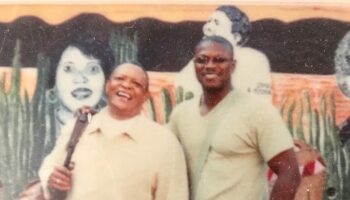One of my favourite authors is Ambrose Bierce. He was a friend and rival of Mark Twain. He appeared, as in born, in June 1942 and disappeared, as in disappeared, in 1913.
He left home at fifteen, went to a military institute and fought as a soldier in the American Civil War. He became a columnist, publishing in newspapers in San Francisco as the “Town Crier” and later for William Randolph Hearst’s newspapers.
Bierce’s sense of probity made him a scourge of every one — from self-absorbed military and civil service careerists to self-righteous Christians and pompous politicians, that is to say all politicians.
He set off to Mexico, or so he said, to see the evolution of the Revolution. No reporter reported coming across him or having been crossed by him. He was contemptuous of Realism and defined it in his classic compilation, “The Devil’s Dictionary,” as “The art of depicting nature as it is seen by toads….”
Following our recent elections in Ghana, I thought I should consult Bierce’s “Devil’s Dictionary” to see what he would have thought about our polls and our pols.
Enjoy.
Politics, n. A strife of interests masquerading as a contest of principles. The conduct of public affairs for private advantage.
Politician, n. An eel in the fundamental mud upon which the super-structure of organized society is reared. When he wriggles, he mistakes the agitation of his tail for the trembling of the edifice. As compared to the statesman, he suffers the disadvantage of being alive.
Vote, n. The instrument and symbol of a free man’s power to make a fool of himself and a wreck of his country.
Elector, n. One who enjoys the sacred privilege of voting for the man of another man’s choice.
Oppose, v. To assist with obstruction and objection.
Opposition, n. In politics the party that prevents the Government from running amuck by hamstringing it.
President, n. The leading figure in a small group of men of whom – and of whom only it is positively known that immense numbers of their countrymen did not want any of them for President.
Conservative, n. A statesman who is enamoured of existing evils, as distinguished from the Liberal, who wishes to replace them with others.
Reporter, n. A writer who guesses his way to the truth and dispels it with a tempest of words.
Representative, n. In national politics, a member of the Lower House in this world, and without discernible hope of promotion in the next.
Compromise, n. Such an adjustment of conflicting interests as gives each adversary the satisfaction of thinking he has got what he ought not to have, and is deprived of nothing except what was justly his due.
Critic, n. A person who boasts himself hard to please because nobody tries to please him
Other classic Biercian definitions:
Plunder, v. To take the property of another without observing the decent and customary reticences of theft. To effect a change of ownership with the candid concomitance of a brass band. To wrest the wealth of A from B and leave C lamenting a vanished opportunity.
Egotist, n. A person of low taste, more interested in himself than in me.
Christian, n. One who believes that the New Testament is a divinely inspired book admirably suited to the spiritual needs of his neighbour. One who follows the teachings of Christ in so far as they are not inconsistent with a life of sin.
Friendship, n. A ship big enough to carry two in fair weather, but only one in foul.
Future, n. That period of time when our affairs prosper, our friends are true and our happiness is assured.
Responsibility, n. A detachable burden easily shifted to the shoulders of God, Fate Fortune, Luck or one’s neighbour. In the days of astrology it was customary to unload it upon a star.
Nonsense, n. The objections that are urged against this excellent dictionary.

